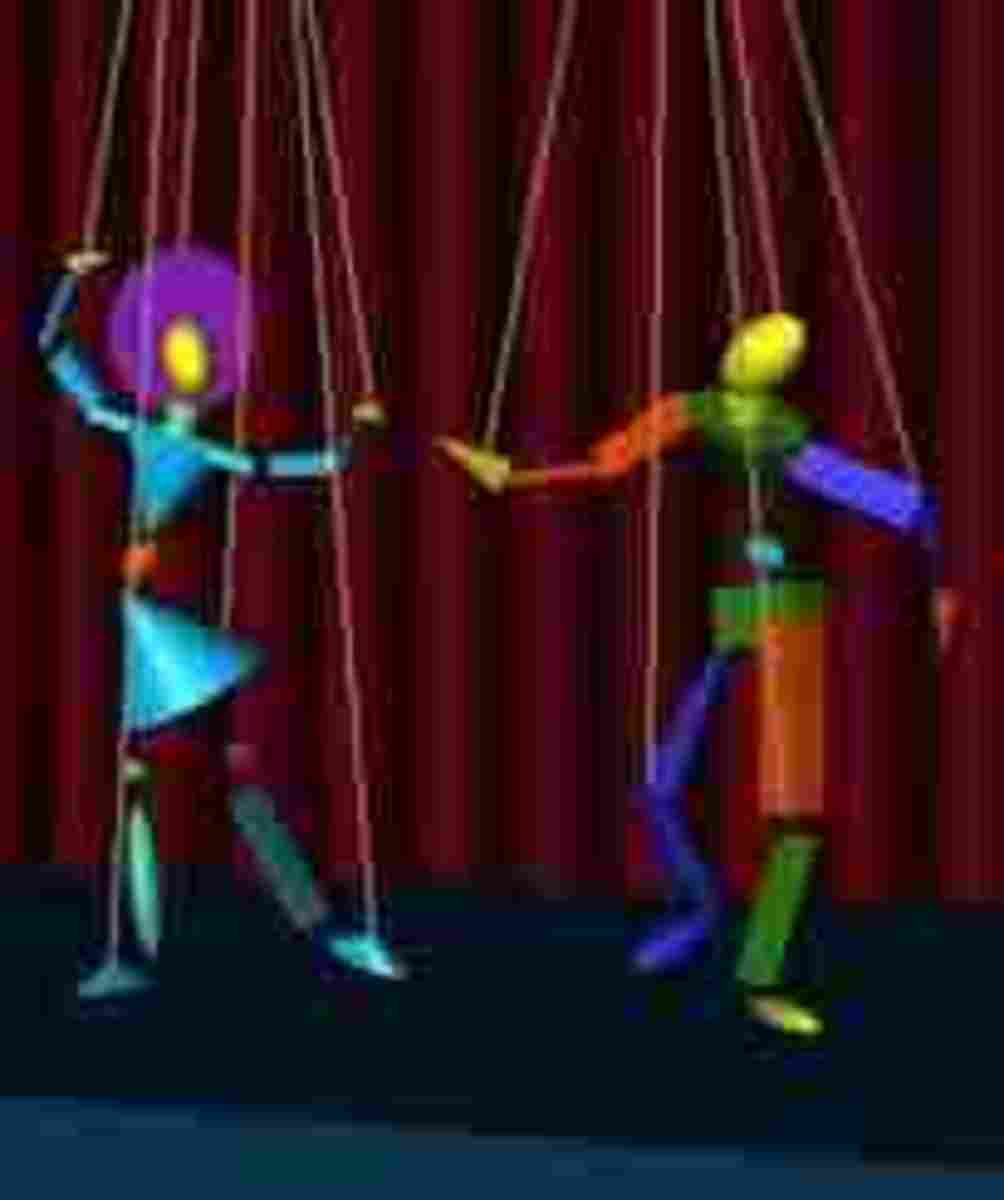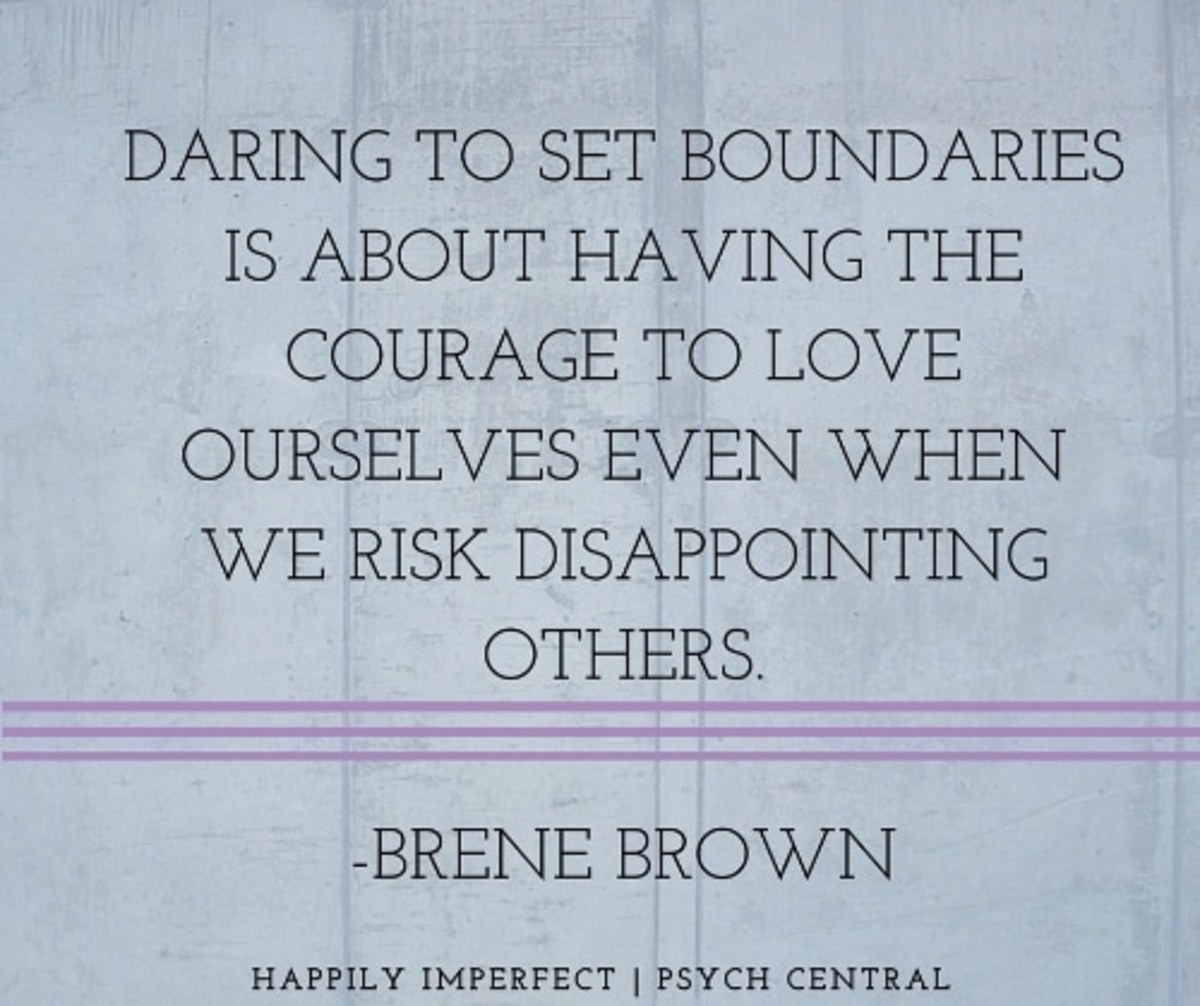Barriers to Growth

Unclogging the Log Jam
While working in the Mental Health field, I have seen countless examples of how people are shown the solutions to their problems but are unable or unwilling to implement those solutions. They are shown the keys to unlocking their cage but can’t seem to reach them or use them correctly. There is some kind of mental barrier between them and the solution. These barriers differ from person to person depending on their situation and/or personality. Most of these are in the subconscious and the person is unaware that they are sabotaging their own success. The following is a few of the barriers that I have observed in others as well as myself.
First, a Disclaimer: Since many of these represent unconscious components of people’s psyches, it is not uncommon for people to become infuriated when coming across one that hits too close to home. To some, exposure of a deeply entrenched component may trigger defense mechanisms and may feel like a personal attack. If it does, this should be a red flag. Feel free to hate me and/or write me off as an obnoxious, presumptuous prick :P
1) Shame or “I shouldn’t have these problems to begin with.”
This is seen a lot with men but can also happen with women. A person can have too much pride to admit that they have a problem or need help with a problem. They hold the belief that a person should be able to deal with such a problem by themselves, and reaching out will be an admission of weakness. Holding this belief could be a result of an occupation, for example, someone in the military may fear seeking help for mental health issues because they may be denied certain positions if their commanding officer suspects that they are not cut out mentally for the task. Ironically, Mental Health professionals are subject to this as well. A counselor or psychologist may believe that they shouldn’t have problems coping with life’s challenges since they are supposed to be experts at that sort of thing. Doctors and other people in high prestige positions may feel that they’re too good to be vulnerable to their own emotions, but you can’t deal with a problem until you admit that you have one. We are all human, even if we like to pretend that we’re super human.
2) Plain Old Skepticism
Some people are just naturally skeptical and will question any proposed solution. Skepticism can be good and keep one from falling for a lot of scams or bad deals, but over-use of skepticism or cynicism can make a person blind to the very thing that could genuinely change their life for the better. People like this will say “If it sounds too good to be true, it probably is.” The key word here is “probably,” meaning that there still exist some things that ARE true, even if they sound incredibly good. There are some solutions that exist in psychology that are amazingly simple – so much so, that people think “There’s no way that could possibly work for a problem that I’ve been struggling with for years.” But it can.
3) Laziness
This is a tried and true method of keeping things exactly as they are. When some people go to a therapist or psychiatrist, they figure, “If I’m spending money on this, then it’s the therapist’s job to fix me or fix my kid or fix my spouse.” As a therapist, I would love to be able to reach inside someone’s head and move some stuff around make it work better. I would help a lot more people in a shorter amount of time. Unfortunately, that’s pretty much impossible. The hard truth is that each person is ultimately responsible for “fixing” themselves; it’s just that this process can be greatly accelerated with the help of a competent therapist, psychologist, etc. Imagine taking your car to a mechanic who just tells you how to fix it but never actually does any of the labor himself and expects YOU to get all greasy and sweaty under the hood. You would be outraged. A lot of clients in therapy are equally outraged when they learn that they will have to do some serious work to get things back on track. Many of these folks find it way easier to just give up and accept their lives the way they are.
4) Rebellious Attitude, Defiance
These people are suspicious of others trying to control them, whether it’s their parents, their spouse, their boss, the cops, the system, the government, society, anybody. They unconsciously think to themselves, “If somebody is trying to get me to change something about myself, it’s because they want to control me.” Everything is a power struggle with someone who holds this belief. They may also believe that the single most important thing in life is showing others that they cannot be controlled. People will go to extraordinary lengths to prove this point, even to the point of self destruction. Ironically, prisons hold many people who believe it was worth it to go there just to show others that they’re going to play by their own rules. But most people afflicted by the Barrier of Defiance don’t go to such extremes. They just don’t accept anyone’s warnings or advice and choose to learn things the hard way. Why try and re-invent the wheel?
5) Sticking Stubbornly to a Dysfunctional Identity
For almost all of us in Western Society, personal identity is of the utmost importance. We couldn’t imagine giving up who we are. One thinks of movies like the classic Invasion of the Body Snatchers where people are replaced with clones of themselves with no personality. Many people believe that if they made positive changes to themselves, they would be losing a part of themselves that makes them unique or special or talented. For example, there are very creative people that believe they are inspired by their dark moods and would lose their creative powers if something were to make them happy, whether it be a medication or a new way of thinking and perceiving. Most likely, though, a more positive mood would actually stimulate creativity rather than abolish it. The only thing is, the things you create won’t be as dark. But that might be a good thing. Some people hold the belief, “If I make a major change to myself, then it’s like I’m selling out.” And along with this is usually the subconscious belief, “It is preferable to be miserable the rest of my life, rather than to sell out, because that would mean that I’d be like the people I detest, who I currently see myself as superior to.”
6) Being “Cool”
Although it is easy to see this one in adolescents and teenagers who believe that being cool is the single most important thing in the world, I’ve seen many adults who have not grown out of this belief. They seem to be stuck in a stage from years ago, and have not realized that cool is an illusion. It is a substitute for self-confidence, self-esteem, smart decision making, and genuine communication. These are what we should be striving to attain rather than an amorphous amalgamation of rock stars and movie characters. There’s also many that have unconsciously equated cynicism with being cool since the trait implies that, “Hey, I’ve been around the block and know how the world really works. I’ve seen it all, and I’m not shocked by anything.” This is also an illusion since nobody has really “seen it all.” Being shocked by something new humbles us and reminds us that there are things we are not fully prepared to handle.
7) Leaving everything up to fate/destiny
This one is usually used by females but can also be found in males. A person states that they strongly believe in destiny or fate and if something is meant to happen, then it will; If it's not meant to happen, it won't. This belief alone isn't neccessarily harmful. It can actually be helpful in situations in which we really don't have that much control and have no choice but to accept things. However, there are those that use this whenever they want to releive themselves of the responsibility of making a tough choice. For these people, making good decisions seems so difficult and stressful that they are willing to leave important decisions up to chance. That's the logical equivalent to flipping a coin to decide whether or not to ware a condom, or seatbelt, or shoot heroine for the first time. We must all come to terms with the fact that we have choices to make in life, and we are responsible for the choices we make. Sometimes we are forced to make choices before we are ready, but anyhow, that is something that each of us must face in life.
8) Exagerated Aversion to Medication
It's good to be mindful of what we put in our bodies and there are legitamate concerns about using a new medication. We should be aware of possible side-effects, allergies, signs of an overdose, and interactions with other meds or foods. But there are some people who absolutely refuse to take medication no matter what the circumstance. A belief that they may hold unconciously may be, "If I take this medication, then that means that I'm weak or crazy." No one wants to see themselves as weak or crazy so the person refuses to take something that may drastically improve their life. Another belief may be, "This medicine will turn me into a docile zombie that's easy to manipulate." or "This medication will turn me into someone I'm not and I will lose my identity." Whatever the reason, there are many people that could benefit tremendously from medication but will never take it. In the past, when the field of psycho-pharmacology was still young, there were, indeed, meds that would have obvious, unwanted side effects, however, today there are countless new medications that work incredibly better than those from the 50s, 60s, 70s, etc. People with Schizophrenia, or severe forms of Mood Disorders almost always need to be on some form of psychiatric medication in order to live a normal life.
9) Fear of the Complex
A lot of us like to believe that there is nothing we can’t handle. If we come across a problem that requires significant analytical skills beyond our capacities, we become intimidated and frustrated and automatically seek a simpler alternative. For example, saying, “We should just nuke them all!” instead of admitting that the problem is complex and will require a complex strategy to deal with it effectively and humanely. The world can seem extremely complicated at times and holds an unfathomable amount of problems that no one person can figure out alone.
10) Overuse of Dark Humor
A good sense of humor is one of the best coping skills that one can have, however, overusing it can have unforeseen consequences. There are many of us who know exactly how to cope well, but forego it by indulging in coping behaviors that we know are unhealthy or frowned upon because we simply enjoy the decadence of it. I have seen therapists express this with each other and have been guilty of it myself. When you deal with sad topics on a daily basis, you tend to become a little calloused and find humor in the darkest of places. But this can become a crutch and an excuse for not dealing with things in a more mature fashion. Overuse of dark humor is also seen in people who enjoy expressing “forbidden topics” and find it funny to cope badly and go against the grain despite knowing better.
11) Fear-of-Success Superstition
This is one that can be buried deep in the subconscious because, if you have grown up in the Judeo-Christian culture of the U.S., it is all around you from day-one, so you can’t imagine a world without it. Basically, it says that everything has its price and the better you feel today, the more you will pay for it tomorrow. Many childhood stories express this notion. The 3 little pigs, Hansel and Gretel, Goldilocks and the Three bears. Many horror flicks continue the theme by implying that sluttish teens will meet a horrifying death if they indulge themselves too much and don’t heed the warnings of their elders. Many people become very anxious when things are going “too well” because they figure its “the calm before the storm.” Many clients unconsciously sabotage their own progress because of unconscious guilt about possibly succeeding at something their peers or family have failed at. They believe that if they finally make it out and lead a happy, productive and fulfilling life, they will pay dearly for it, either in this life or the afterlife.
12) Forgetfulness
Honest forgetfulness, not just pretending you forgot, often leads to a relapse. Not just in the case of substance abuse, but in any case where someone has made great strides and then gradually slides back into their old selves. Self help books are actually a good way grow psychologically. The problem is, like with therapy, one assumes that they will remember what they learned indefinitely, and doesn’t bother to go back and take a refresher course. You may have learned wonderful things that opened your eyes but now those things are looking pretty faded and blurry after all these years and you’re wondering if it was just a temporary fix. Well, in a way, it was. You gotta go back and re-read the book or re-visit the therapist for a booster session.
13) Avoiding Friction with Norms
Change is tough, especially when those around you are holding you down. It makes us uncomfortable to break with norms because we know it will draw attention from people who will be like, “Who does he think he is now? Does he think he’s better than us? Well, we’ll have to put him back in his place.” Upsetting the pecking order can have huge social consequences, but sometimes it is more perceived than real. There may be plenty of people around you that will actually be supportive and glad you are making positive changes for yourself. These are the real friends and family.
14) Fear of admitting that one has been on the wrong path for so long.
Often seen with those who have been around a while and are set in their ways but can also be seen in teens and young adults who take life seriously. If we have invested a lot of time and energy in a certain way of doing things we are VERY unlikely to be willing to cut our losses and admit that others had a better life strategy than we did. Can you imagine looking back on your life at age 60 or beyond and saying, “Damn, I fucked up. I could have been doing it THIS way the whole time and things would have been so much easier.” Because of the fear of experiencing this scenario, we can stay in denial for a long time saying to ourselves, “I had no choice. It’s the only way I could have done it and its too late to change now.” This brings us to our next barrier to change…
15) A belief that one is too old to change or “You can’t teach an old dog new tricks.”
Yes, change is harder as you get older but it’s far from impossible, and think of the rewards of finally being happy in a way that’s not just temporary. I think it’s worth the work. This leads into the next, and hopefully the last, barrier to positive change.
16) Fear of Loss by Being Happiest at The End
“Well I’m old as dirt and I’ll probably die soon. If I find a way to be happy now, think of how much I’ll be losing when I die? I’d rather stick to hating my life so that when I do die, I’ll actually be relieved.” How fucked is that line of reasoning? Think about all those people that, upon finding out that they only have so long to live, do all the things they wanted to and actually feel like they have been set free. Now don’t go overboard, you may end up living longer than you think, but remember that it’s never too late to start being happy. Some people’s happiest years are there final ones. Sometimes they save the best for last.
Summary:
Most of these barriers to growth are never recognized by the people who are blocked by them. The beliefs lie in their subconscious, part of the super-unknown. Problems can’t be solved if you don’t even know you have the problems. So how the hell is one supposed to unearth these barriers? Sometimes your gut can give you a clue. At first glance you may think to yourself, “I know other people who think like that but I don’t think like that.” And you’re right because you don’t think that… consciously. But listen to what your gut tells you when you think about these barriers. Does something seem familiar? Do your actions, feelings, or re-currant thoughts show a pattern that is consistent with a belief about life that may actually be holding you back? By pulling something from the unconscious up onto the workbench of the conscious mind, you can begin to work on it and actively refute erroneous thinking. By changing thoughts you can eventually change feeling, and in-turn, change patterns of behavior that have left you stuck in rut. Once you get out, who knows what you can do.










